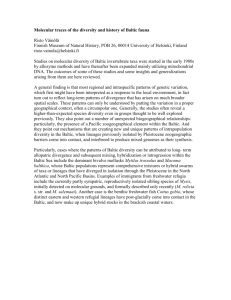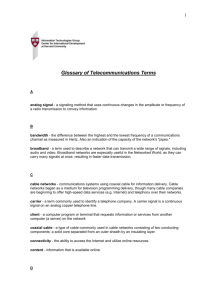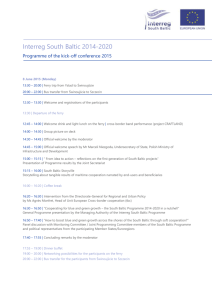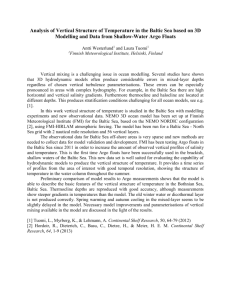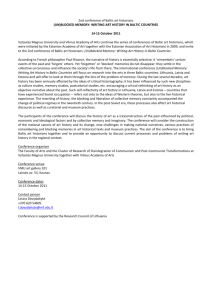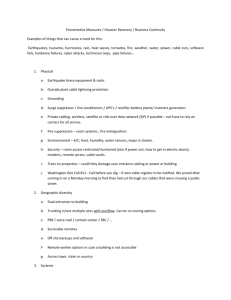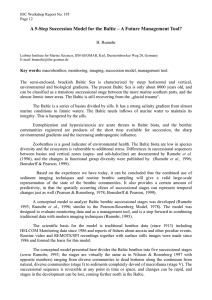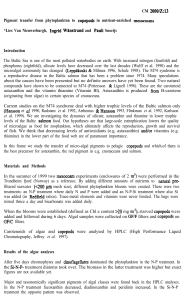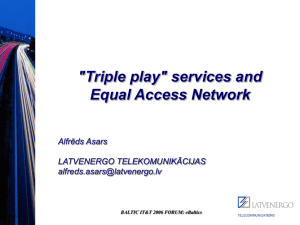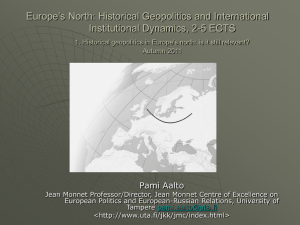I'd like to draw your attention to some issues that are concerning
advertisement
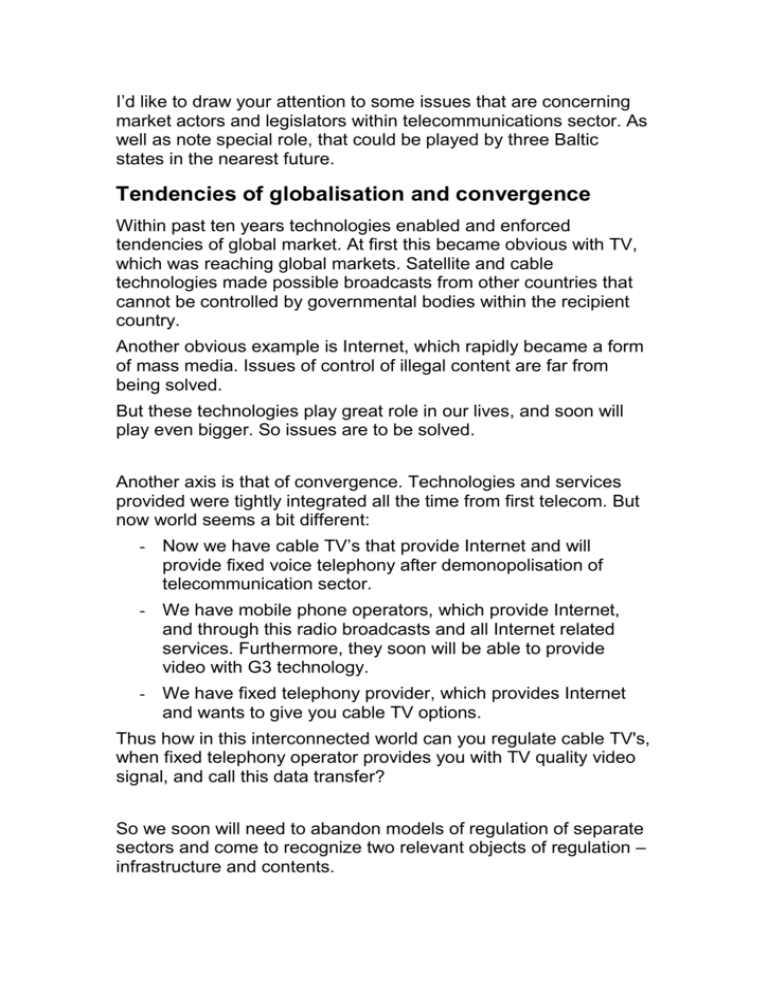
I’d like to draw your attention to some issues that are concerning market actors and legislators within telecommunications sector. As well as note special role, that could be played by three Baltic states in the nearest future. Tendencies of globalisation and convergence Within past ten years technologies enabled and enforced tendencies of global market. At first this became obvious with TV, which was reaching global markets. Satellite and cable technologies made possible broadcasts from other countries that cannot be controlled by governmental bodies within the recipient country. Another obvious example is Internet, which rapidly became a form of mass media. Issues of control of illegal content are far from being solved. But these technologies play great role in our lives, and soon will play even bigger. So issues are to be solved. Another axis is that of convergence. Technologies and services provided were tightly integrated all the time from first telecom. But now world seems a bit different: - Now we have cable TV’s that provide Internet and will provide fixed voice telephony after demonopolisation of telecommunication sector. - We have mobile phone operators, which provide Internet, and through this radio broadcasts and all Internet related services. Furthermore, they soon will be able to provide video with G3 technology. - We have fixed telephony provider, which provides Internet and wants to give you cable TV options. Thus how in this interconnected world can you regulate cable TV's, when fixed telephony operator provides you with TV quality video signal, and call this data transfer? So we soon will need to abandon models of regulation of separate sectors and come to recognize two relevant objects of regulation – infrastructure and contents. On infrastructure. For example in USA we had examples of cable TV providers providing internet access to their clients, while banning video signal transfer through their internet channels. This is just one obvious example to mention, when providers of services can easily come to changing liberal nature of Internet. For that not to happen, we need to formulate principles and stick to them. We have not to hurry, but not to be late either. On contents. This question progressed much more, but is still far to go. We have a workable framework “TV without borders”, we have initiatives of EU to work on illegal contents problems, so here is field to join and act. Again, we need principles for them to be implemented. So we will need frameworks for regulating these very complex objects, which are just not available yet. If they are not available someone needs to work on them. As well, we will need regulatory bodies, which will be able to implement those principles. And it is not an easy task to create them efficient. Resume I don’t have ready available answers to all these questions. I hope you don’t either . But considering Baltic states as region of quite different but at the same time countries much in common, I will propose Baltic Assembly to start hearings on global IT&T market of Baltic states. This could be as a social experiment for entering into the new age. Baltic states provide much more homogeneous environment, than we see in EU. So they will constitute model of what can later be developed into broader context. Issues addressed will be smaller, there will be only three parties to negotiate and take decisions, etc. On the other hand, countries are different in their journey to liberalized telecommunications market and other criteria. So they will reflect some differences that will be encountered in broader area. But hopefully they will be solvable for us to deal.
